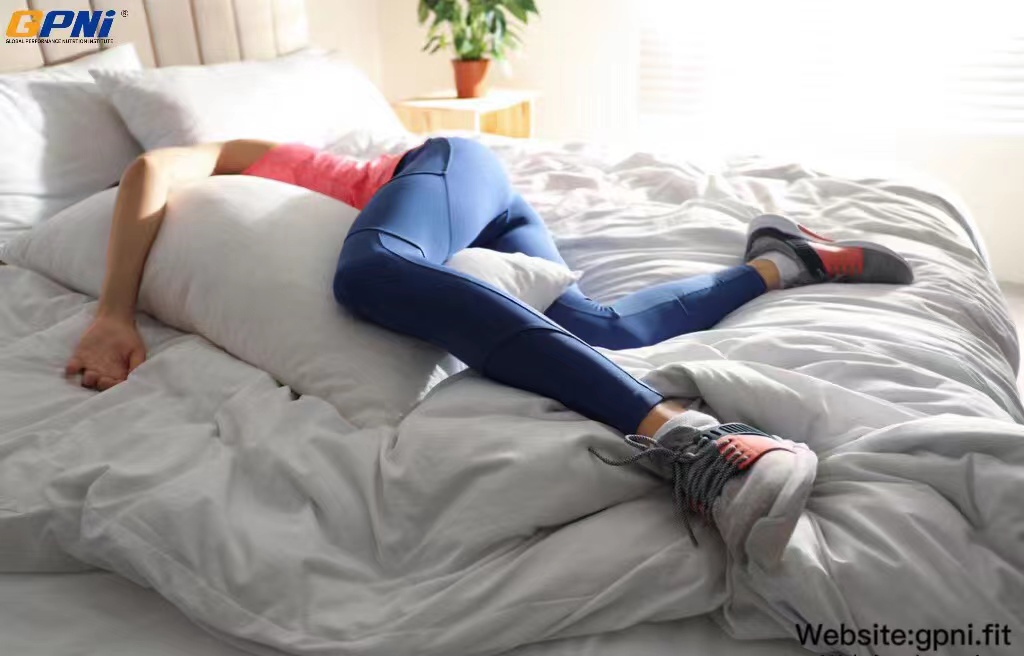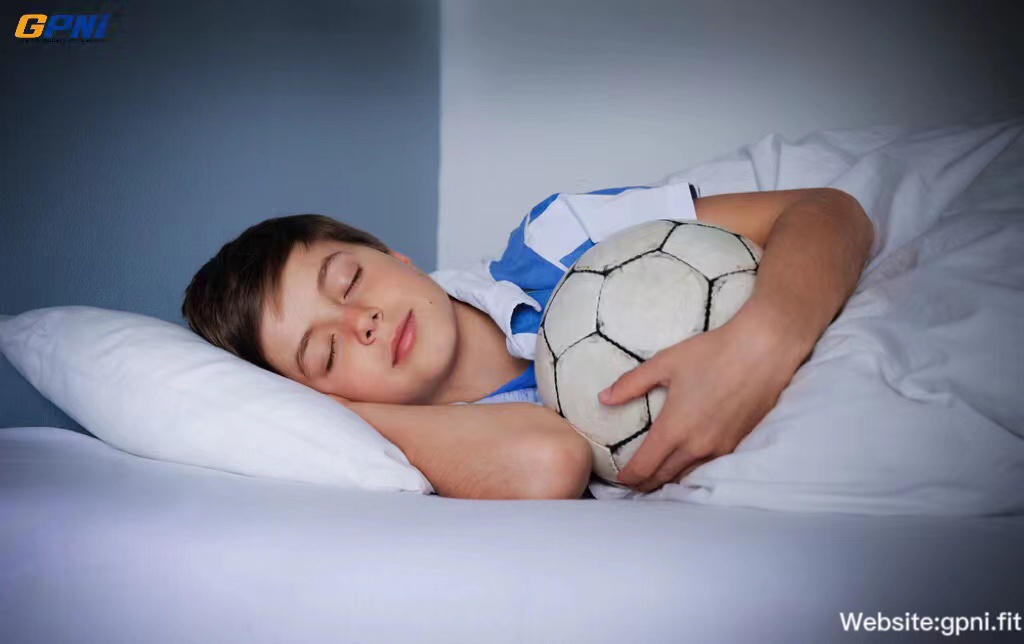Athletes know the importance of physical activity, but what about sleep? Many put the highest priority on spend training itself, but what about rest, recovery, however, do not understand just how important sleep is. Many are aware that sleep is important to performance and recovery but unaware of its critical importance, as well as what is considered “optimal sleep”.
Sleep is essential to the human body, and studies have proven that it is critical for athletic performance and recovery. This article will discuss why and how sleep is vital for athletes and recommend sleep hygiene tips that athletes may incorporate to get healthier sleep.

Why is Sleep Important for Athletes
Sleep is essential to athletes’ recovery from fatigue and their ability to carry out their activities effectively because of sleep’s mental, emotional and physiological role it plays. Sleep performs some essential functions in the human body that ensure that it enhances performance in athletes. Some of these functions include:
- Repair of cells and tissues
- Rest for the heart and the promotion of cardiovascular health
- Strengthening the immune system to fight illness and diseases.
It is a combination of all these effects of sleep on the human body that impacts the performance of athletes.
Positive Effects of Sleep on Athletes and Athletic Performance
There are several ways that sleep affects the performances of athletes. These include:
1.It helps athletes recover from fatigue
Several studies have revealed that sleep is an essential component in helping athletes recover from fatigue. In a review published by the National Centre for Biotechnology Information, researchers noted that sleep is an integral part of athletes’ recovery and adaptive process between bouts of exercise.

Read more details here: https://pubmed.ncbi.nlm.nih.gov/29135639/.
Studies have further revealed that athletes and their coaches are fully aware of the importance of sleep to their recovery purpose. However, during intense competitions where training is at its peak, sleep duration is usually sacrificed, throwing off athletes’ circadian rhythm and decreasing fatigue recovery.
2.It improves performances
Not only does sleep help with fatigue and the recovery process, but studies have also revealed an improvement in performances where athletes get adequate sleep.
One such study was a Stanford study of men’s basketball players that extended their sleep to 10 hours every night. This study revealed remarkable positive effects, including the fact that the players ran faster in both half-court and full-court sprints. Furthermore, their free-throw and three-point shooting improved by at least 9.8%. Lastly, the athletes also reported that they felt improvement in their physical and mental well-being.

Read full details on the study here: https://www.ncbi.nlm.nih.gov/pmc/articles/PMC3119836/.
Another review revealed that swimmers that increased their sleep duration to 10-hours every night found that reaction time, strokes, sprints, and dives were faster and more robust. They also felt clear-headed and mentally stable to participate in activities.

Read full details on that review and the recommendations made here: https://www.ncbi.nlm.nih.gov/pmc/articles/PMC6988893/.
Tennis players were not exempted as an increase in sleep duration led to increased accuracy in serves by up 8%. The study on these players concluded that an increase in sleep of approximately 2 hours every night remarkably increased athletic performance.

Read full details on the study here: https://pubmed.ncbi.nlm.nih.gov/26325012/
From the studies above, it is without question that quality sleep guaranteed improved athletic performance. It ensured that athletes’ bodies reacted faster, and their brains processed information at top speed.
Effects of Sleep Deprivation on Athletic Performance
Lack of sleep or poor-quality sleep inevitably leads to multiple adverse effects on any individual. From mental slowness that affects reaction and thinking to increased irritability, depression, anxiety, and medical concerns, poor quality sleep should be avoided. For athletes, there are immediate effects of lack of quality sleep on their performance and health. Some of the impacts and concerns include:
1.Quicker Exhaustion
Lack of sleep or poor-quality sleep means that athletes get tired far quickly. In a study conducted on runners and volleyball players, which the NCIB published, it was suggested that a night of sleep deprivation might reduce exercise performance by decreasing exhaustion time.

Read full details of the study here: https://pubmed.ncbi.nlm.nih.gov/19264040/.
2.Reduction in Accuracy
A study carried out on tennis players revealed that sleep deprivation led to a decrease in accuracy by up to 53% in tennis players, irrespective of their genders.

Read details here: https://pubmed.ncbi.nlm.nih.gov/23916998/
3.Increased risk of Injury and Illness
Low-quality sleep affects the ability to resist illnesses and diseases, and this is because rest is important to the proper functioning of the body’s immune system. Therefore, when athletes fail to get a night of adequate sleep, they are susceptible to more illnesses, including something as common as cold.
Furthermore, studies reveal a higher risk of injuries for athletes due to sleep deprivation. One such study on adolescent athletes (about 160 of them) found that athletes who slept for less than 8 hours a night were 1.7 times more likely to suffer injuries than athletes who slept for 8 hours and more. The study concluded that “encouraging young athletes to get optimal sleep may help protect them against athletic injuries.”

Read full details here: https://pubmed.ncbi.nlm.nih.gov/25028798/.
4.Restrained ability
Sleep deprivation has also been shown to inhibit the performance of sprinters. A study that assesses the effect of a 30hr sleep deprivation on sprinters’ performance demonstrated that sleep loss reduced sprint performance and slowed pacing strategies during intermittent sprints for male team-sport athletes.

Read full details here: https://pubmed.ncbi.nlm.nih.gov/21200339/.
Other adverse effects include:
- Slower reaction time
- Difficulty learning strategies and skills’
- Poor decision making
Sleep Hygiene Tips for Athletes
Are you an athlete seeking to improve your sleep quality and duration? Here are some tips that may help you achieve quality sleep
- Avoid alcohol and coffee just before bed. Both drinks contain substances that will either keep you from sleeping (caffeine) or cause you to wake up often. One way to ensure that you sleep and stay sleeping is to avoid these beverages.
- Have a sleep schedule. Set a time to go to bed and wake up every day. This helps train your body to go to sleep and stay sleeping until wake-time. Ensure that your sleep schedule incorporates the duration of time you are expected to sleep for your age.

- Avoid electronics before bed. Phones and laptops contain a light that tricks your brain that it should still be awake. Some minutes (say 30 minutes -1 hour) before bedtime, avoid using your cellphone. You could read a book instead.
- Take Short Naps (if you must take them at all). Long naps during the day could lead to the inability to sleep at night. Therefore, ensure you nap for a short time and ensure it is not close to your bedtime.
- Optimize your sleep environment. Ensure that your bedroom is optimized for sleep. You can do this by ensuring that it is cool, dark, and quiet at bedtime. Your beddings and pillows should also support restful sleep.
Conclusion
Sleep is essential to athletes. Just as training and diet ensure optimal performance, quality sleep is also a practice that helps get the best out of the body. Furthermore, lack of good sleep also takes its toll on the body and performance.

To know more about sleep and athletes, get learning resources such as those listed below, and register today to be a Sports Nutrition Specialist (SNS®) on the GPNi® platform.
Take your sports nutrition knowledge to the next level and qualifications by getting to study and getting certified with the GPNi®. GPNi® is the official partner of the ISSN globally online and offers the official and exclusive courses to help prepare you to pass the official ISSN certifications, The Sports Nutrition Specialist (SNS, and the Certified Sports Nutritionist (CISSN).
Here are a list of all the GPNi® certificate and certification programs.
International Certifications Available In 2022
Continued Education Certificates In 2022
For more information please check out this page: https://thegpni.com/education/certifications-courses







